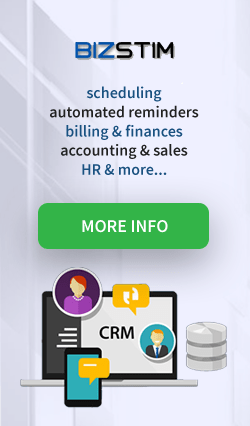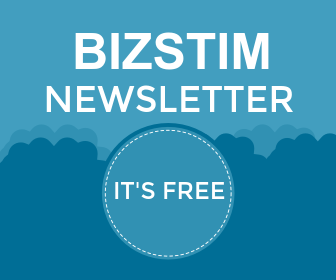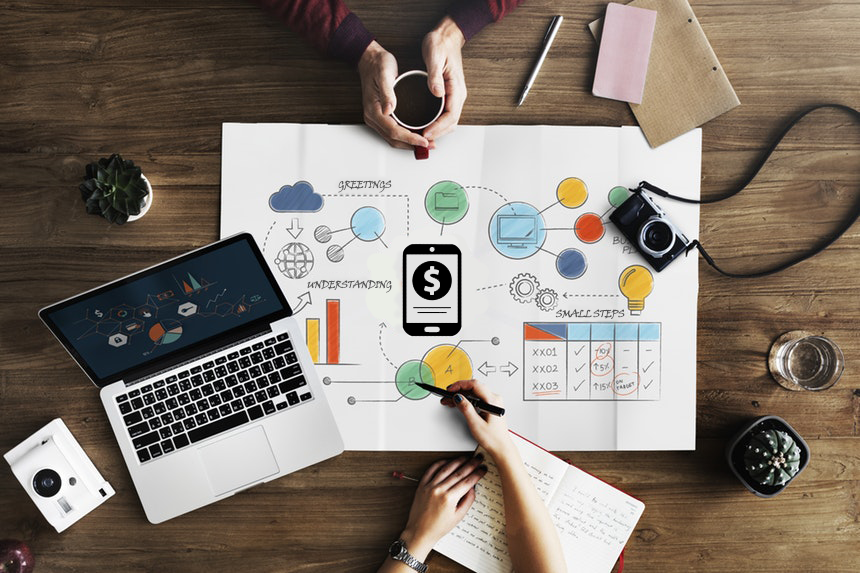
In today's fast-moving world, being productive is key to success, no matter your role. Student, professional, or entrepreneur, mastering productivity helps you win. We're about to explore some top ways to get more done with less effort. This guide offers steps to improve your efficiency and reach your aims faster.
Introduction to Productivity
Today, it's vital to grasp productivity's role in achieving goals. It goes beyond simply doing tasks quickly. It's about utilizing our limited time wisely to get the best results.
By developing good time management and productivity habits, people can boost their performance. This leads to greater success in their endeavors.
Why Productivity Matters
Being productive is essential, no matter who you are. For students, professionals, or entrepreneurs, it helps you meet your targets more smoothly. Good productivity habits let you use your time and resources well.
This leads to achieving more and feeling fulfilled in what you do.
The Challenges of Modern Life
Today's world is filled with things that make staying productive tough. We face constant distractions from technology and pressure from society. Finding ways to deal with these is key to better time management.
Once we understand what's slowing us down, we can create strategies. These help us manage our time wisely and stay focused, even when life gets busy.
Understanding the Fundamentals of Productivity

Learning the basics of productivity is key for improving workflow and hitting your goals. Knowing how to balance being efficient and effective helps optimize your performance. These skills are vital.
Defining Productivity
Productivity involves looking at how efficient and effective you are. Boosting efficiency means doing more with less time and resources. Being effective is about focusing on tasks that really matter and yield big results.
Efficiency vs. Effectiveness
Efficiency reduces effort and resources, while effectiveness ensures tasks are right. Balancing these elements is crucial. It greatly improves how you work and what you accomplish.
Efficiency and effectiveness in focus:
- Efficiency Enhancement: Using tools and methods to lessen effort and time for tasks.
- Effectiveness in Workflow: Choosing tasks that significantly impact your goals.
Setting Clear Goals for Productivity

Setting clear goals is key to boosting productivity. With SMART goals, you can aim for outcomes that are within reach and important. These goals are Specific, Measurable, Achievable, Relevant, and Time-bound. This makes every goal clear and easy to follow.
SMART goals turn broad ideas into targeted tasks. Instead of just wanting to "improve productivity," you would aim to "increase daily work output by 20% over the next quarter." You'd do this by focusing on a major task each morning without any distractions.
Productivity goals help you choose what tasks to focus on, pushing you towards your bigger aims. By checking and tweaking these goals often, you stay on track. Clear goals mean everyone knows what's expected, ensuring teamwork towards common targets.
What are SMART goals:
- Specific: Clearly defines what is to be achieved
- Measurable: Provides a way to assess progress and completion
- Achievable: Sets realistic and attainable goals
- Relevant: Aligns with broader objectives and priorities
- Time-bound: Establishes a timeframe for goal completion
Using SMART goals in your planning improves productivity and performance. Figure out your goals, break them into tasks, and stick to your schedule. With precise goals, handling your tasks and reaching your targets becomes much easier.
Prioritizing Tasks for Maximum Impact

Effectively managing tasks by their importance can greatly boost productivity. It's vital to know the difference between urgent and important tasks to improve task management. This understanding helps one concentrate on tasks that add more value to their goals.
Important vs. Urgent Tasks
Knowing what tasks are urgent and which are important is key to setting priorities. Urgent tasks need quick action but may not align with your long-term goals. Important tasks, however, have a big impact on your goals and success. Balancing these can improve your time management and productivity.
Using the Eisenhower Matrix
The Eisenhower Matrix is a useful tool for evaluating tasks. It organizes tasks by urgency and importance for better daily planning. Tasks are sorted into four groups:
The Eisenhower Matrix:
- Urgent and Important
- Important but Not Urgent
- Urgent but Not Important
- Not Urgent and Not Important
This method allows you to concentrate on tasks with the highest impact, leading to more effective goal achievement.
Using the Eisenhower Matrix can change the way you manage time and tasks. It helps with making smart priorities, leading to higher productivity and success.
Time Management Techniques

Learning how to manage time well increases productivity and keeps workflow balanced. It's good to try the time blocking method and the Pomodoro Technique.
Time Blocking
Time blocking means dividing your day into set times for specific tasks or related activities. This method stops multitasking by focusing on just one thing at a time. It makes you more efficient.
Techniques for effective time management:
- Identify priority tasks: List the tasks that are most important.
- Create time blocks: Set aside specific times in your calendar for each task.
- Stick to the schedule: Avoid distractions to stay productive during each time block.
This method helps avoid feeling too stressed and manages your tasks well.
The Pomodoro Technique
The Pomodoro Technique uses short, focused work sessions followed by breaks. Each cycle is a 25-minute focus period and a 5-minute rest. After four cycles, take a longer break. This keeps your mind sharp and avoids burnout.
The Pomodoro technique defined:
- Set a timer: Focus hard for 25 minutes.
- Short break: Relax for 5 minutes.
- Repeat: After four cycles, enjoy a 15-30 minute break.
With the Pomodoro Technique, finishing tasks becomes easier. This leads to better productivity and a balanced work and personal life.
Eliminating Distractions

To boost productivity, we need to cut out common workplace distractions. The constant pings from our devices and the allure of social media can really hurt our focus. Fighting these distractions is key to keeping a clear, efficient work environment.
Common Distractions in the Workplace
There are lots of things that can take our mind off work these days. The buzz from our phones, endless emails, and checking social media are just a few. Noisy surroundings, surprise meetings, and chatty coworkers can also break our concentration. This makes it tough to stay focused.
Strategies for Minimizing Distractions
There are good ways to keep distractions at bay and boost our work output. First, try to use your phone and apps only when really needed. Make specific times for checking your inbox and messages. It's also important to make your workspace better for focusing. Using headphones that cancel noise and setting up your area to lessen interruptions can help a lot.
How to minimize distractions that impact your productivity:
- Digital Detox: Cut down on using your phone and social media when you should be working. Tools like Freedom or StayFocusd can block distracting sites.
- Workspace Optimization: Set up your work area to keep out noise and distractions. Adding plants or room dividers can make your space calm and focused.
Using these methods to improve focus not only creates a space without distractions but also helps us reach our highest work potential.
The Power of Focus in Achieving More

In our fast world, being able to do deep work is very important. It makes us more productive. Focusing hard on what's important can really improve what we achieve. It makes things better and faster. To be top in your area, focusing is key.
Deep Work
Deep work means doing tasks in a focused way that stretches your mind. This kind of work lets people create great things quickly. To do deep work, you need to value quiet time and set limits. This helps you do better work and stand out in your job.
Blocking Off Time for Focused Work
For better focus, set aside time for deep work. This means choosing parts of your day to work without breaks. This plan should mix work and breaks for your brain to work its best. Doing this often makes you more effective and builds a good routine.
Effective Communication to Enhance Productivity

Effective communication is key to being productive, both personally and at work. It makes conversations clear, cutting down misunderstandings. This makes teams work better together and helps achieve goals smoothly.
Clear communication helps keep everyone focused and on the same page. This saves time by preventing mistakes from wrong information. Using tools and strategies for better communication leads to sharing information clearly and quickly.
Here are some ways to promote effective communication for efficiency:
- Use collaborative platforms like Slack or Microsoft Teams to maintain open lines of communication.
- Establish clear and concise email guidelines to avoid information overload.
- Regularly schedule team meetings with well-defined agendas to ensure all topics are addressed efficiently.
- Encourage active listening among team members to verify understanding and reduce misunderstandings.
By using these strategies, communication at work gets better, making the team more productive. It creates an environment where info is shared clearly and efficiently. This keeps everyone working towards the same goals, leading to better performance and teamwork.
Healthy Habits for Sustainable Productivity

Healthy habits are key to keep productivity up. Regular exercise, enough sleep, and practicing mindfulness can greatly boost how well we do tasks.
Exercise and Physical Activity
Working out regularly gives big health boosts. Running, biking, or walking every day can make you happier and more energetic. This can make you do better in your job and personal life.
Staying active helps you handle stress better. It makes you more focused and energetic for all kinds of tasks.
Importance of Sleep
Getting enough sleep is super important for doing well at work. It keeps your mind clear, your emotions stable, and your body healthy. Sleeping well helps you make good decisions and solve problems better.
Trying for 7-9 hours of good sleep each night can make you much more productive.
Mindfulness Practices
Mindfulness can really change how you work. Techniques like meditation and deep breathing reduce stress and help you concentrate. They make you feel calmer.
Starting these habits can improve your work and your well-being. Apps and guided meditation are good ways to start.
By having productive health habits, you can keep doing well at work. With these tips, you can find a good balance in your work life.
Using Technology as a Productivity Tool

Today's workplace heavily relies on technology to boost productivity. But, it's a mix of good and bad. The key is using it smartly to benefit our work life.
Productivity apps are a big help. They organize tasks, plan meetings, and remind you of deadlines. Tools like Todoist and Microsoft To-Do are perfect for daily tasks.
There's more to Digital tools for efficiency than just organizing tasks. Calendar apps, such as Bizstim, Google Calendar and Outlook, keep schedules straight and accessible. Moreover, Trello and Asana improve teamwork by keeping everyone updated on projects.

Leveraging technology also means saving time with automation tools. IFTTT and Zapier automate tasks like sending emails or updating files. This lets you focus on more important work.
Yet, relying too much on technology has its downsides. With so many work-related software options, it's easy to feel lost or sidetracked. Be mindful in using these tools and set limits to keep a healthy balance between work and life.
Picking the right productivity apps, digital tools for efficiency, and using technology wisely can greatly improve your work routine. It makes you more efficient and productive.
Stress Management to Prevent Burnout

In today's world, managing stress well is key to staying productive and avoiding burnout. Knowing the early signs of work stress is important. It helps people act early to reduce stress. Managing stress is about more than coping. It's about creating a life that keeps you performing well without getting overwhelmed.
Recognizing Signs of Stress
It's vital to notice stress signs early to deal with them quickly. Signs include being tired all the time, finding it hard to focus, feeling easily annoyed, and having headaches or tense muscles. When you know these signs, you can stop stress from turning into bigger health problems.
Stress-Reduction Techniques
Using good stress-reduction methods can really improve how you handle stress and avoid burnout. Techniques like slow breathing exercises, staying active, and doing mindfulness activities like meditation help keep your mind calm and focused. It's also important to take short breaks and make sure you have time away from work. Adding these strategies to your daily life can help you work productively without sacrificing your well-being.
What do you think is the most important tip for improving productivity?








